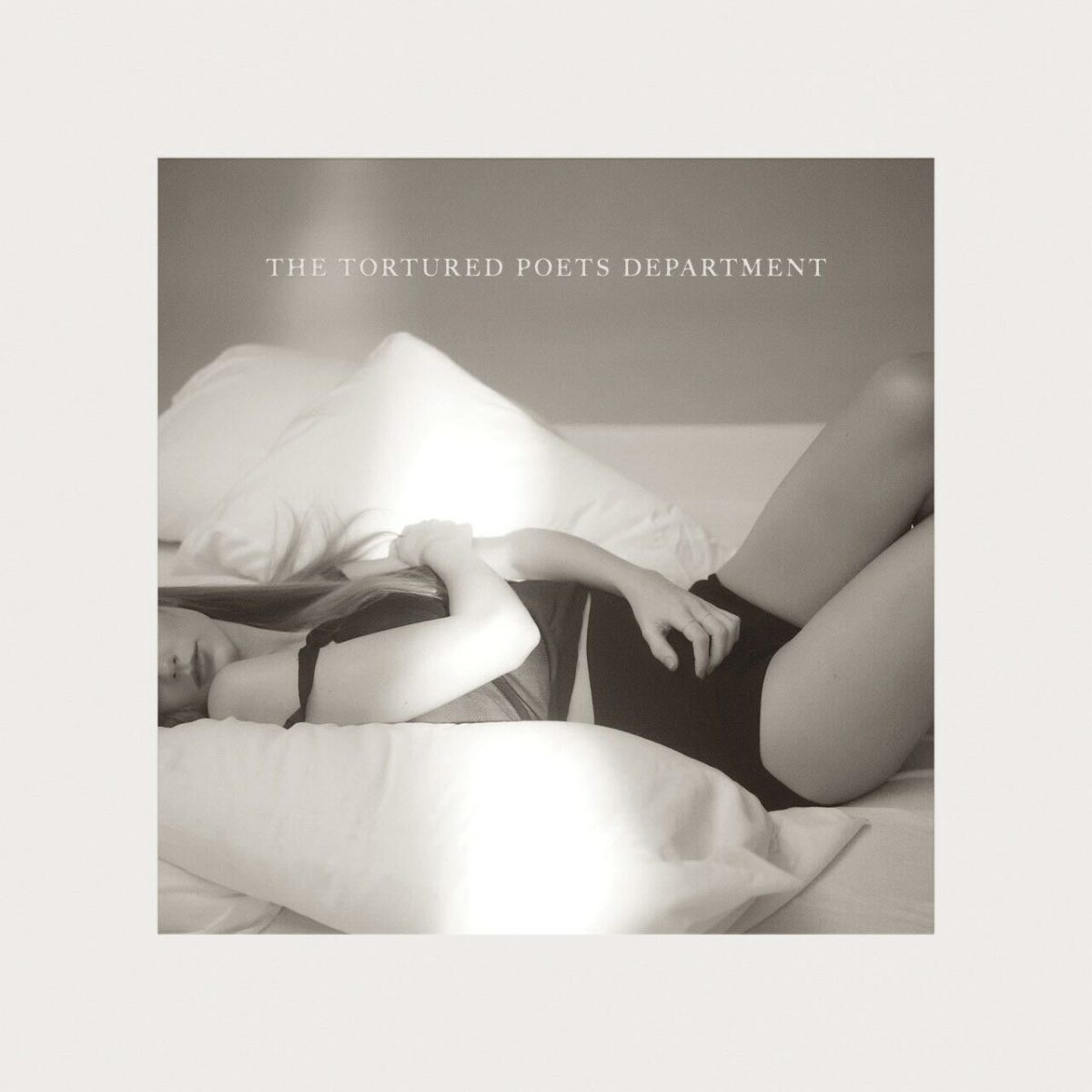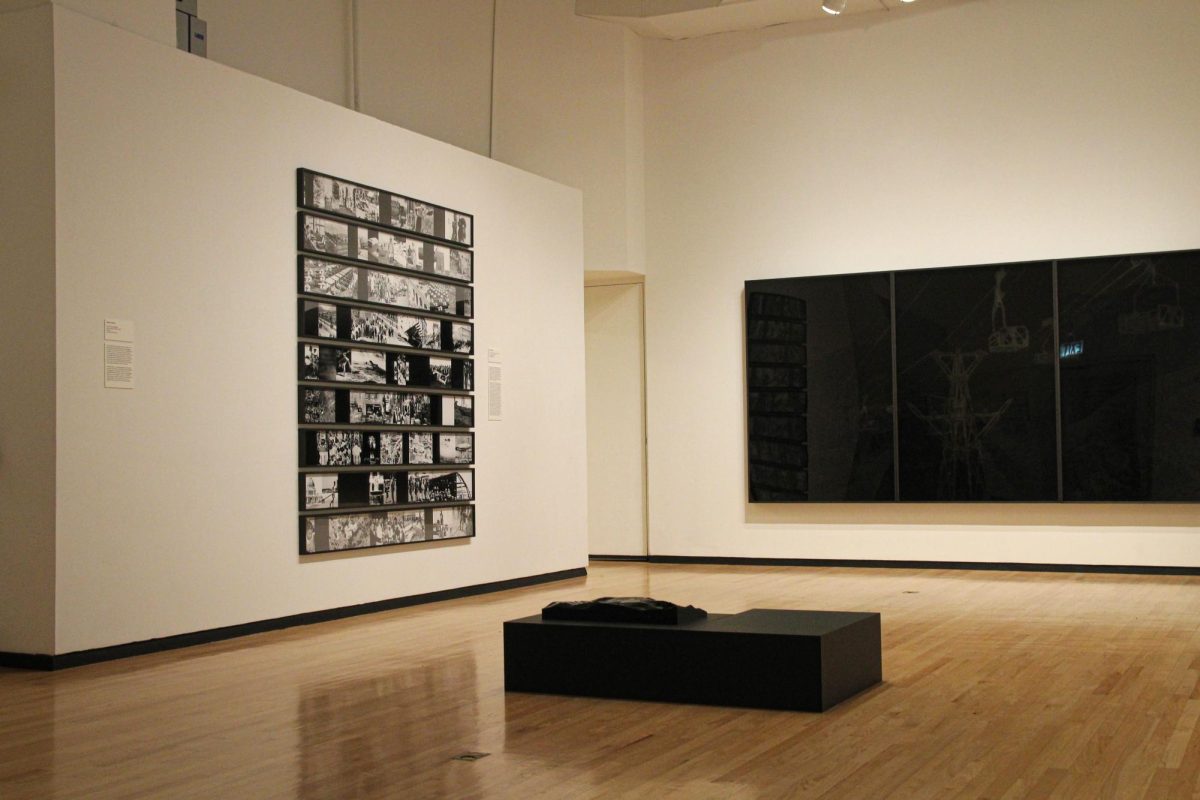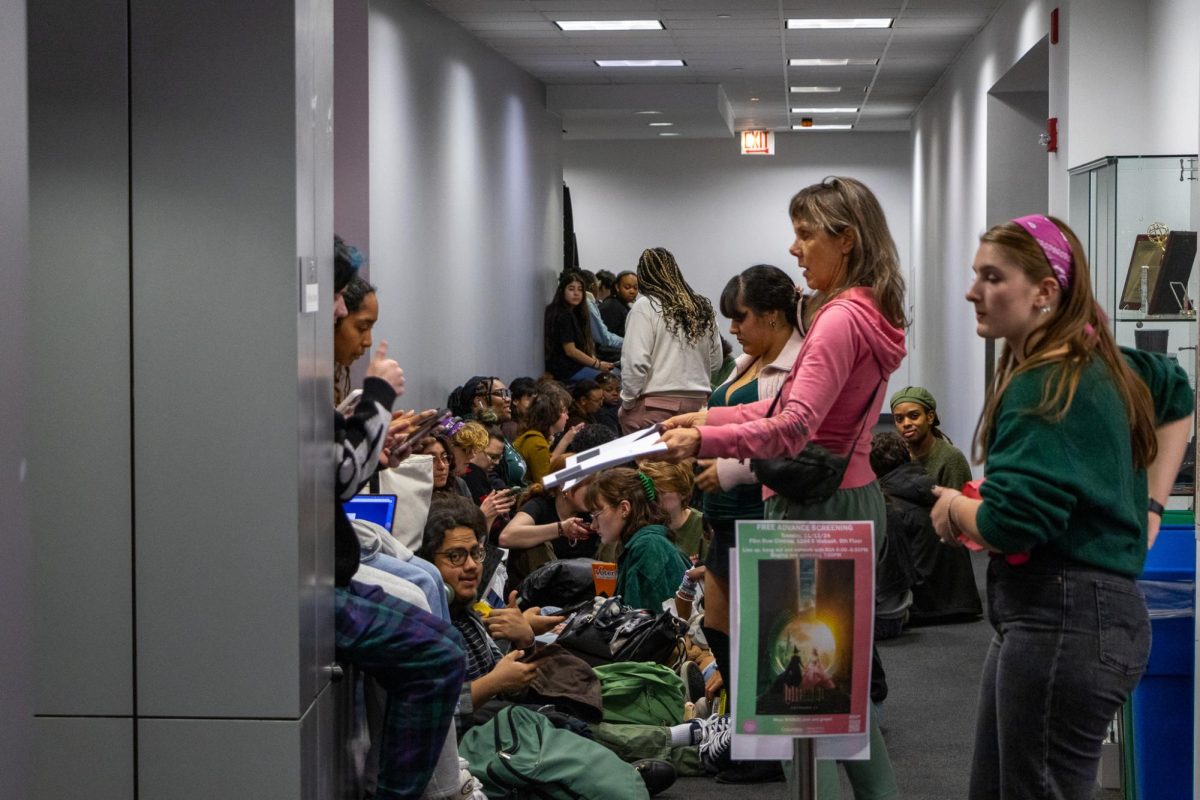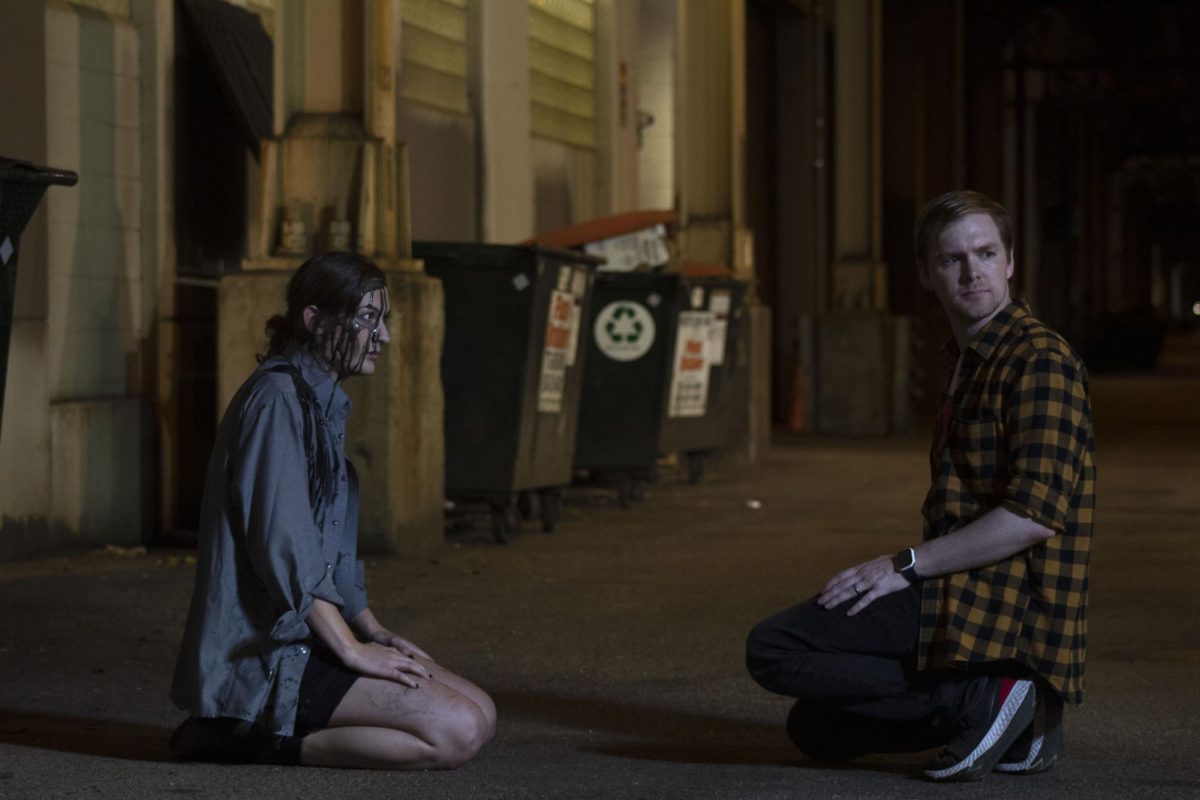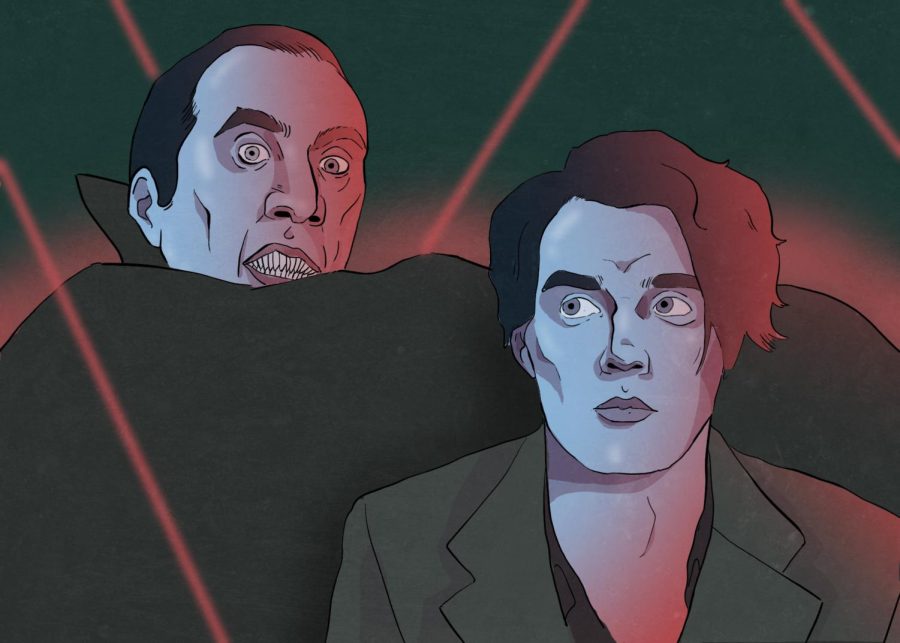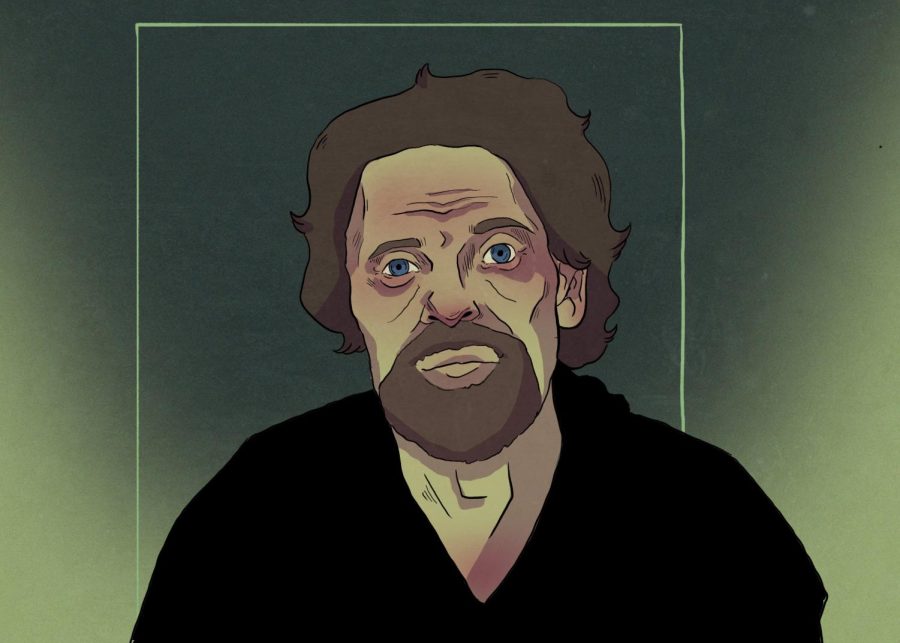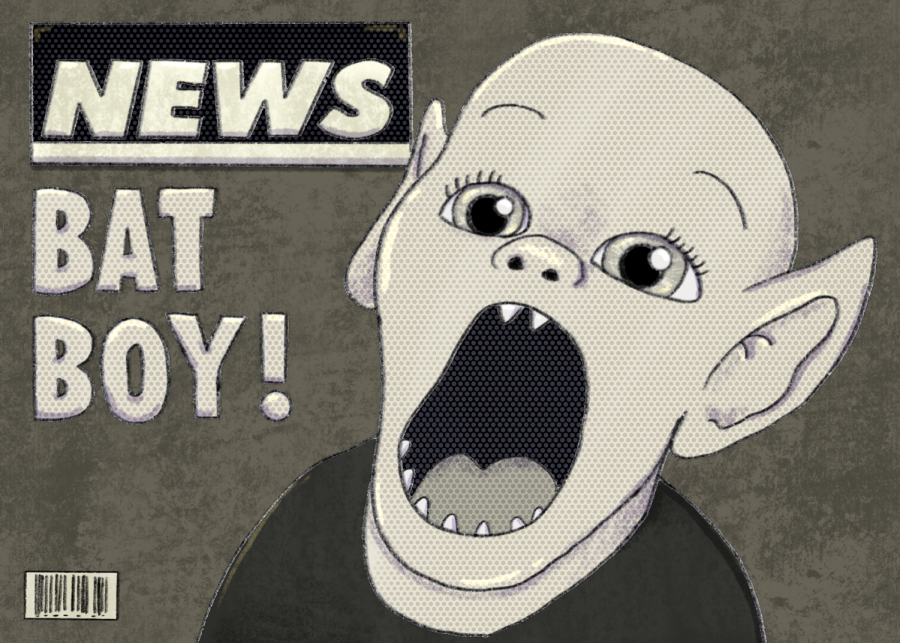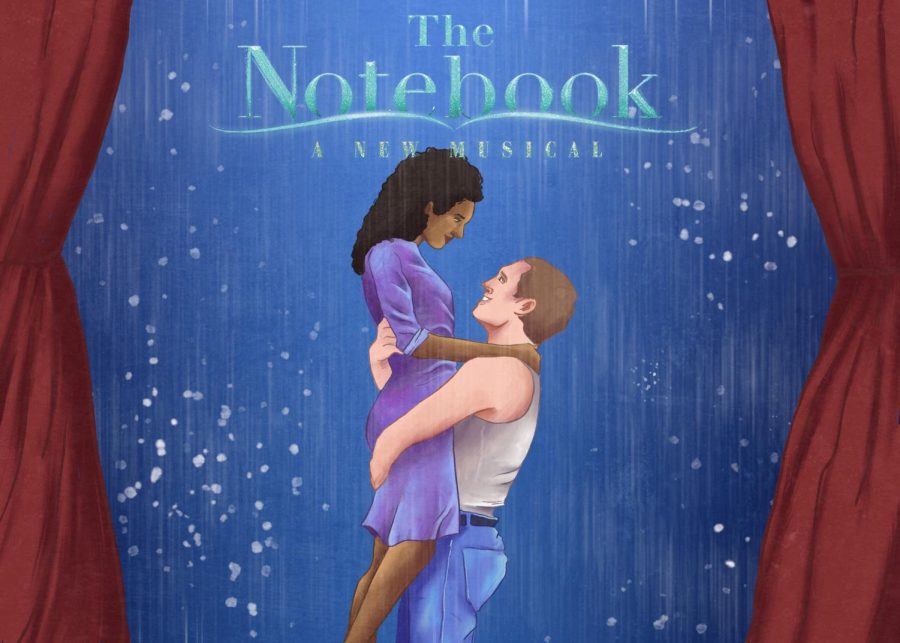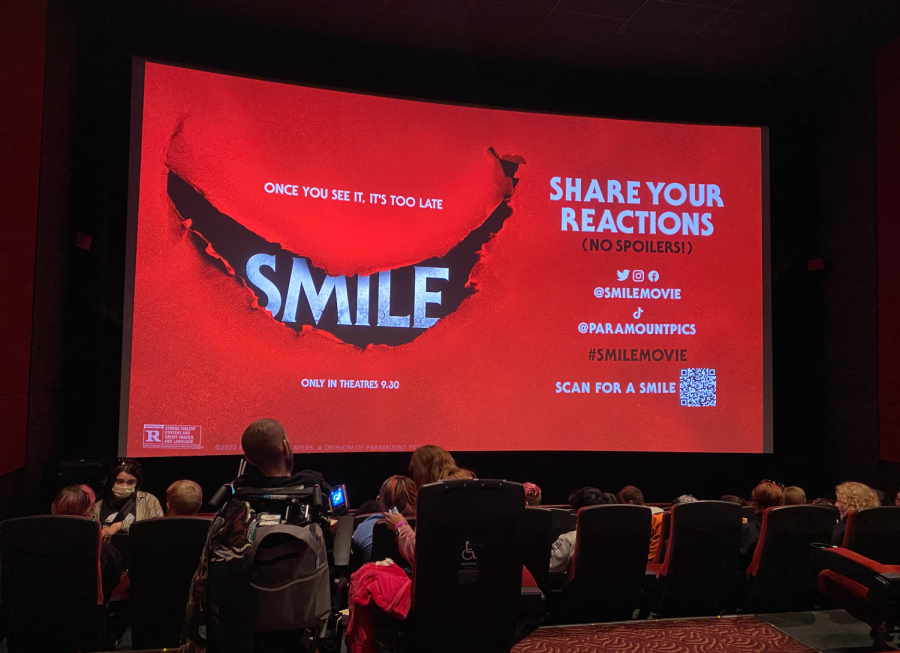Taylor Swift’s latest studio album “The Tortured Poets Department” does its best to capture the brilliance of the singer’s abilities, but gets bogged down by nonsensical lyricism, monotonous production and an omnipresent creative rut.
Swift’s latest album follows 2022’s “Midnights” and is her tenth studio album overall, and ninth record released (re-recordings included) within the last five years. Her creative output has only been further heightened by the record-breaking success of her billion-dollar “Eras Tour” and re-releases of her earlier albums to reclaim ownership of her master recordings. There has been no shortage of Swift-related content offered up to the masses, and it seems that Swift herself has been eager to deliver just about anything she can to her hungry audience. So when her latest album was quickly followed up with an expanded “Anthology” edition with 15 additional songs just hours later, it should have come as no surprise.
Opening the album is “Fortnight,” a collaboration with Post Malone that follows the mid-tempo, synth-pop style first distinguished on “Midnights.” The song’s palatable, modest production follows throughout most of the album, at times pushing further into danceable bedroom pop territory with “I Can Do It With A Broken Heart” and cathartic drum outbursts on “Florida!!!.” The album cascades along with enjoyable standouts such as the cool, head nod-worthy sounds of “Down Bad,” the sunny, quasi-country cut “But Daddy I Love Him” and the pulsing synth beat of “So Long, London.” For the “Anthology” half of the album, “The Albatross” flutters with whimsical strings in the vein of her 2020 album “evermore,” the double entendre of “imgonnagtyouback” is reminiscent of Olivia Rodrigo’s “get him back!” and “So High School” delivers a manageable amount of cliché atop an early-aughts sounding instrumental.
But among these standout tracks, and even throughout some of them, sleepy production and reductive lyricism overshadow Swift’s heartfelt storytelling.
When playing the album front to back — which takes all of two hours if you include the 15 “Anthology” songs — the songs slowly, but surely begin to fade into one another in a manner that leaves the listener more fatigued than enthralled. None of that is to say that the album is a waste of Swift’s talents, but there is little ingenuity on the record that has not already been done prior (and better) by the singer herself.
What is challenging to understand is why Swift felt compelled to pen such to-the-point, literal lyrics when she has been writing masterly lines such as “And you call me up again just to break me like a promise/So casually cruel in the name of being honest,” since she was barely of legal drinking age. How we’ve somehow landed at “You smoked then ate seven bars of chocolate/We declared Charlie Puth should be a bigger artist/I scratch your head, you fall asleep/Like a tattooed Golden Retriever,” is perhaps the greatest mystery of the record. The literal nature of many of the album’s lyrics weaken their impact upon listening. The line between easy to understand lyrical metaphors and just downright watered down, play-by-play recounting (“And my friends all smell like weed or little babies”) is fine.
The life of America’s favorite sweetheart is far from uneventful — the last year of her life alone was filled with the end of a six-year relationship, a billion-dollar touring endeavor, a rumored fling with The 1975 frontman Matty Healy, a new relationship with Kansas City Chiefs tight end Travis Kelce and a record-breaking night at this year’s Grammy Award ceremony.
For so much action happening in her very public life, “The Tortured Poets Department” startlingly contrasts the public perception of her life through songs that sound as if she has led a quiet, gray existence. No one knows the inner workings of the singer’s life, so it would not be fair to doubt or belittle any sadness or struggle that may exist behind her superstar persona. However, if there has been personal strife, it is not presented on this album in a way that feels or sounds revelatory. Swift’s artistic specialty has always been her ability to capture the vivid nature of complex emotions or experiences in life — take the kaleidoscopic entirety of her 2012 LP “Red,” for example. But on this latest set of musical narratives, this once reliable vivid encapsulation seems to have become dulled or over-exhausted.
Given Swift’s laborious role in the pop culture landscape, it is understandable that her pen may become less razor-sharp at times. Regardless of how cathartic it may have been for her to write these songs, they indicate that they could have spent more time being fine-tuned before sending off into the world.
Subtle synths, acoustic guitar and piano comprise most of the songs in a manner that is generally user-friendly and an easy listen, but when repeated 31 times over, can’t help but feel a bit tiresome. Many of the songs sound like a hybrid between the “Midnights” synth style and the acoustic ballads of “folklore,” though the result sounds a bit more dull than the original copy.
Really, how many times can an M1 synthesizer be used before everything starts to sound too eerily similar?
Swift, like any great writer, could still use the help of a good copy editor to help widdle things down to a more concise, inventive LP. For those who have followed the singer’s musical evolution for years prior, “The Tortured Poets Department” can’t help but feel like a futile and messy plateau of her blazing, ever-expanding catalog.


